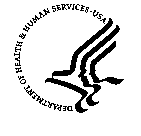Report of the
NIH Consensus Development Conference
on the

Rehabilitation of Persons with
Traumatic Brain Injury

National Institutes of Health
National Institute of Child Health and
Human Development

U.S. Department of Health and Human Services
Public Health Service
National Institute of Child Health and Human Development
September 1999
Report of the Consensus Development Conference on the REHABILITATION OF PERSONS WITH TRAUMATIC BRAIN INJURY
Sponsored by:
National Institute of Child Health and Human Development
Office of Medical Applications of Research, NIH
Co-sponsored by:
National Institute of Deafness and Other Communication Disorders
National Institute of Mental Health
National Institute of Neurological Disorders and Stroke
National Institute of Nursing Research
Office of Alternative Medicine
Office of Research on Women’s Health
Agency for Health Care Policy and Research
Centers for Disease Control and Prevention
October 26-28, 1998
Bethesda, Maryland
U.S. Department of Health and Human Services
Public Health Service
National Institutes of Health
National Institute of Child Health and Human Development
September 1999
Table of Contents
- Introduction to the NIH Consensus Development Conference on Rehabilitation of Persons With Traumatic Brain Injury
- NIH Consensus Statement
- Consensus Development Panel
- Speakers
- Planning Committee
- Acronyms/Abbreviations
- Abstracts
Rehabilitation of Individuals With Traumatic Brain Injury: Status of the Art and Science
John Whyte, M.D., Ph.D.Challenges in Determining the Epidemiology of Traumatic Brain Injury: Issues Affecting Incidence, Prevalence, and Risk Factor Identification or Measurement
Jess F. Kraus, Ph.D.Trends in Traumatic Brain Injury-Related Hospitalizations—United States, 1980-1995
David J. Thurman, M.D., M.P.H., and Janet Guerrero, M.S.Neurocognitive/Behavioral Outcomes in Children and Adults
Harvey S. Levin, Ph.D.Functional Consequences and Outcome Measurements
Mitchell Rosenthal, Ph.D.Consequences of Traumatic Brain Injury for the Family
Jeffrey S. Kreutzer, Ph.D., ABPPConsequences of Traumatic Brain Injury for Functioning in the Community
John D. Corrigan, Ph.D.Economics of Traumatic Brain Injury Rehabilitation: Observations on Progress and Recommended Directions
Mark V. Johnston, Ph.D. and Kenneth Wood, Ph.D.Receptor-Based Mechanisms of Functional Recovery
Tracy K. McIntosh, Ph.D.Cellular Mechanisms of Recovery
John T. Povlishock, Ph.D.Neuroplasticity, Experience, and Mechanisms of Brain Information Storage
William T. Greenough, Ph.D.The Cognitive and Behavioral Mechanisms Underlying Recovery From Traumatic Brain Injury at Different Stages After Injury
Donald T. Stuss, Ph.D.Agency for Health Care Policy and Research Evidence-Based Practice Report
Randall M. Chesnut, M.D., Nancy Carney, Ph.D., Hugo Maynard,
Ph.D., Patricia Patterson, Ph.D., N. Clay Mann, Ph.D., and Mark
Helfand, M.D.Cognitive Rehabilitation: An Impairment-Oriented Approach Embedded in a Holistic Perspective
George P. Prigatano, Ph.D.A Contextualized and Routine-Based Approach to Cognitive and Behavioral Rehabilitation: A Historical Perspective
Mark Ylvisaker, Ph.D.Cognitive Rehabilitation: Research Approaches
Ronald M. Ruff, Ph.D.Institute of Medicine Model of Disability
Diana D. Cardenas, M.D.Models of Head Injury Care
D. Nathan Cope, M.D.Access to Brain Injury Rehabilitation and Other Post-Acute Services
Gerben DeJong, Ph.D.The Consumer Perspective on Existing Models of Rehabilitation: The Rehabilitation of Persons With Traumatic Brain Injuries
Theresa M. RankinQuality of Life and Life Satisfaction Studies
Allen W. Heinemann, Ph.D., ABPPEthical Considerations in Research Design Involving Persons With Traumatic Brain Injury
John Banja, Ph.D.Approaches to Resolving the Dilemma
Kenneth J. Ottenbacher, Ph.D. - Report of the Consensus Panel
Epidemiology of Traumatic Brain Injury
Consequences of Traumatic Brain Injury
Mechanisms Underlying Functional Recovery Following Traumatic Brain Injury
Effectiveness of Rehabilitation Interventions to Address Cognitive, Behavioral, and Emotional Consequences of Brain Injury
Models of Comprehensive Rehabilitation for Traumatic Brain Injury
- Appendix A
The Consumer Perspective on Existing Models of Rehabilitation for Traumatic Brain Injury
T.M. Rankin - Appendix B
The Epidemiology of Traumatic Brain Injury Among Children and Adolescents
K.A. Dunn, M.D., M.S.P.H., D.J. Thurman, M.D., M.P.H., and C.J.
Alverson, Jr., M.S. - Appendix C
Evidence Report/Technology Assessment: Rehabilitation for Traumatic Brain Injury
R.M. Chesnut, M.D., N. Carney, Ph.D., H. Maynard, Ph.D.,
P. Patterson, Ph.D., N.C. Mann, Ph.D., and M. Helfand, M.D.
 BACK TO TOP
BACK TO TOP